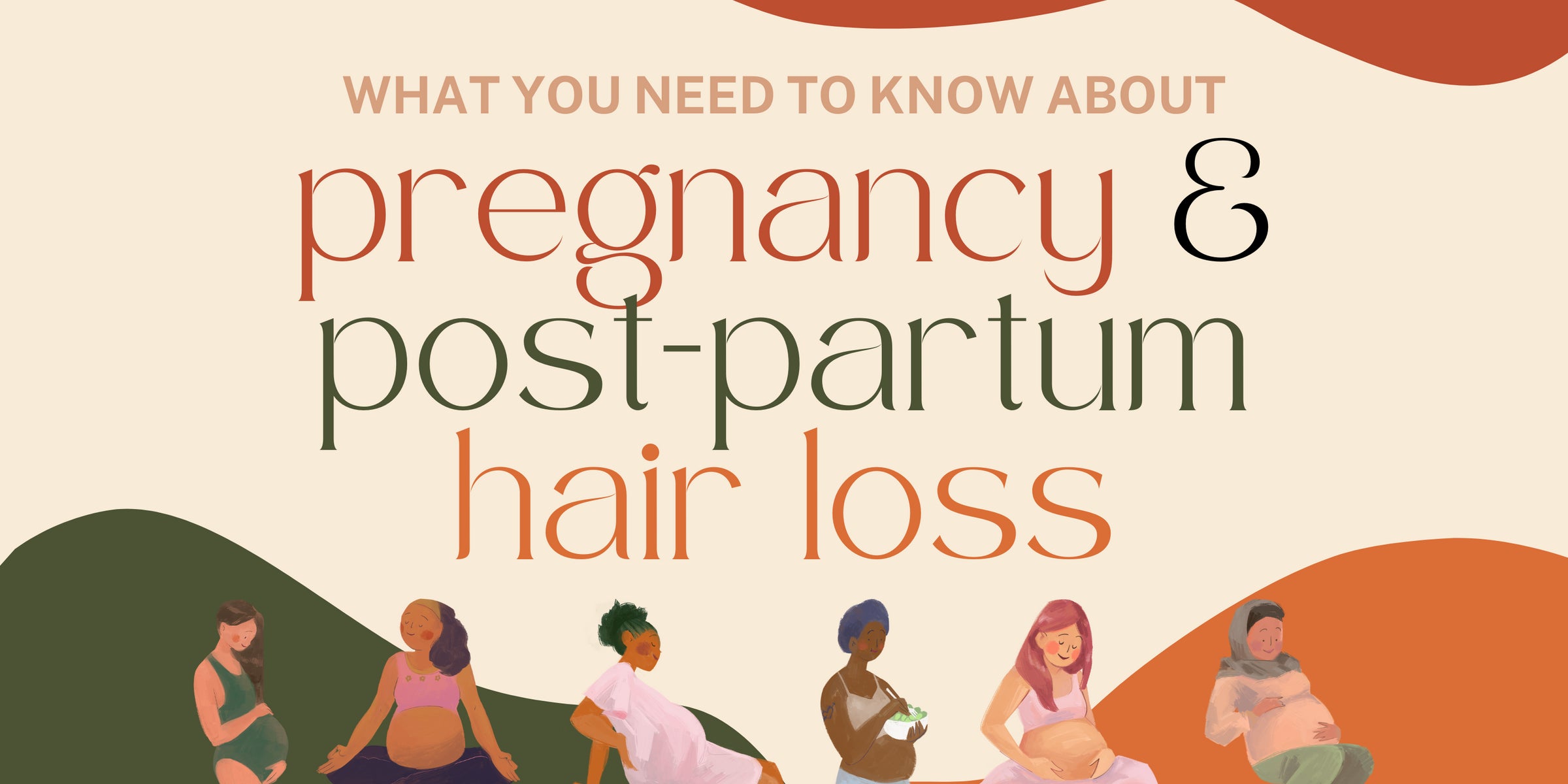
One unexpected perk of motherhood? Extra hair shedding!
If you’re a new or expectant mother noticing more hair fall than usual, don’t worry. This is actually a widespread condition- and it all grows back! (As long as you keep your scalp healthy.)
Hair Loss for New & Expectant Mothers Is More Common Than You Think
Given how common pregnancy-related and postpartum hair loss is, it’s amazing how few of us have heard of it until it happens to us. Though it’s difficult to find solid, recent, sourced statistics, as many as half of all mothers may experience pregnancy-related hair loss, according to the American Pregnancy Association.
“It’s not a normalized conversation. Hair loss, hair shedding, there’s a lot of shame,” explains Vigor Roots Founder & CEO Nathalee DuRose, who herself didn’t know about the condition until she experienced it after the birth of her second child. She advises new mothers, “They should expect to experience more than usual hair shedding. It’s normal, don’t be alarmed because it all grows back- but the rate at which it grows back is highly dependent on how you treat your scalp.”
Why Does It Happen?
Hormones affect your hair. And given the massive hormonal shakeups that occur with pregnancy, childbirth, and breastfeeding, it’s no wonder that you might notice changes in your crown in your new motherhood journey.
Some women luck out and enjoy thicker, more lustrous-looking hair during pregnancy due to soaring estrogen levels.
Others may start seeing extra shedding during pregnancy due to hormonal changes from going off birth control, thyroid issues, nutrition, or other factors.
Many women experience telogen effluvium, a type of temporary hair loss that occurs after a major shock to the system- like childbirth. The amount of hair loss can range from mild shedding to noticeably thinner, duller hair.
Either way, don’t despair. Your hair usually returns to normal within 6-12 months.
It Grows Back- As Long as Your Scalp Stays Healthy
If postpartum hormonal shifts are truly the cause of your hair loss, you can trust that your crown will come back.
However, there are many other reasons your hair could be thinning and staying gone. Oftentimes, it comes down to the health of the scalp.
Hair doesn’t grow when the pores of your scalp are blocked or infected. Hair doesn’t grow when you’re wearing a style, wig, or weave so tightly that your scalp isn’t getting proper circulation.
Autoimmune disease, certain medications, or a nutrient-deficient diet can also cause stubborn hair loss. So, if you’re worried about your thinning hair, make sure to talk to your dermatologist so that you can identify the actual cause(s).
No matter what, the long-term health of your hair depends on the health of your scalp. So, if you want that crown back, make sure you’re making time for #ScalpCareIsSelfCare.
Scalp Care Basics For When You’re Short on Time
Now, we know your time is in short supply and we have no desire to stress you out further by expecting you to accomplish a huge scalp care To-Do List.
“I can’t tell a new mom to go take care of your hair 7 times a week,” says DuRose. “I know for a fact you’re probably changing diapers and your hair probably won’t get washed for 2 weeks sometimes.”
So, let’s just keep it simple. Do what you’ve got to do to keep your scalp clean & moisturized. Try your best to wash at least once a week with gentle shampoo and conditioner- preferably ones that have natural ingredients and aren’t too heavy on alcohol or other drying ingredients.
We also recommend applying a nourishing, natural scalp care serum-like Root22 to keep your scalp moisturized at least once a week. Make sure your hairstyle isn’t pulling your hairline tightly. If you’re rocking a wig, take it off at night.
Make sure to plan ahead and enlist support so you can take this weekly moment for scalp care. Schedule for dad or another family member or friend to watch the kids while you de-stress and tend to your crown.
Scalp Care & Mental Health
Your weekly scalp care time is important not just for your hair health, but for your mental health as well.
Research has shown that women’s confidence is greatly affected by hair loss. And a hit to your confidence when you’ve just given birth, are up all night caring for your newborn, and are at risk for postpartum depression? It’s a situation not to be taken lightly.
It’s so important that you give yourself the love and support you need to thrive through your transition into motherhood.
Also, by taking this time to care for your crown, you get to pass healthy scalp care habits on to your kids- which helps to break generational cycles of preventable hair loss.
Motherhood looks beautiful on you. Keep your scalp healthy and your hair glowing with Root22Serum.

